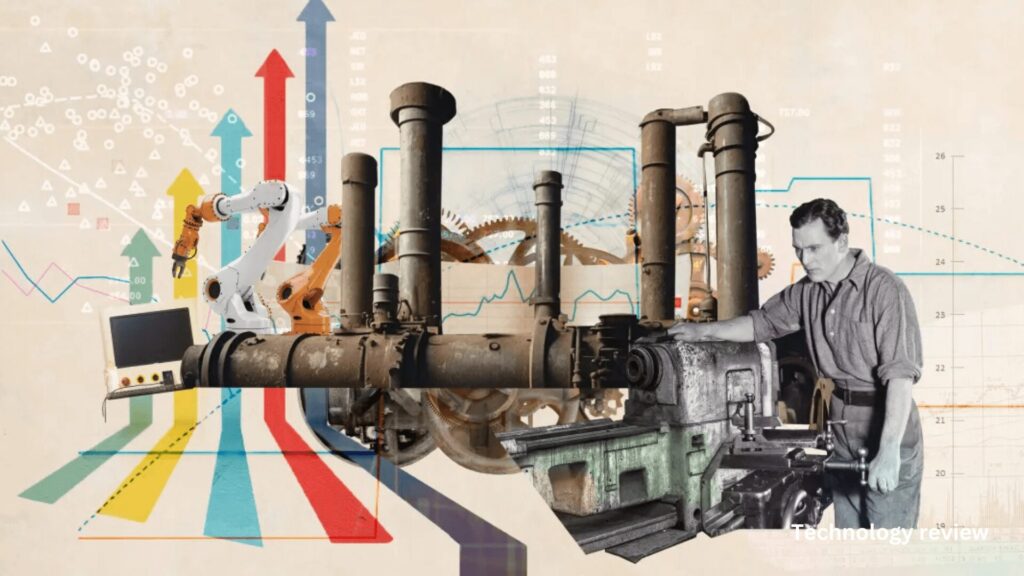The Download: Boosting Prosperity with Al and Fighting for a Better Future As you navigate the rapidly evolving landscape of artificial intelligence, you may find yourself pondering its potential to reshape our world. The promise of Al to boost prosperity and create a brighter future is tantalizing, yet the path forward remains uncertain. In this article, you’ll explore how Al technologies are being leveraged to drive economic growth and improve quality of life across the globe. You’ll also examine the critical battles being waged to ensure Al’s benefits are distributed equitably and its risks are properly managed. By understanding these dual forces of innovation and advocacy, you’ll gain valuable insights into how Al could transform society for the better.
How Al Can Boost Prosperity
The Download: boosting prosperity with Al, and fighting for a better future has become a central focus for many industries and governments worldwide. Artificial Intelligence (Al) is rapidly transforming the way we live and work, offering unprecedented opportunities to enhance economic growth and improve quality of life.
Enhancing Productivity and Efficiency
Al technologies are revolutionizing various sectors by automating routine tasks and optimizing complex processes. This increased efficiency allows businesses to allocate resources more effectively, leading to higher productivity and economic output. From manufacturing to healthcare, Al-driven solutions are streamlining operations and reducing costs, ultimately contributing to overall prosperity.
Fostering Innovation and New Industries
As Al continues to evolve, it’s creating entirely new markets and job opportunities. The development and implementation of Al systems require skilled professionals, spurring job growth in fields such as data science, machine learning, and Al ethics. Additionally, Al-powered startups are emerging across industries, driving innovation and economic diversification.
Improving Decision-Making and Resource Allocation
Al’s ability to analyze vast amounts of data and identify patterns enables more informed decision-making at both organizational and governmental levels. This data-driven approach can lead to more effective policies, better resource allocation, and improved public services, all contributing to a more prosperous society.
Challenges of Implementing Al Ethically
As we strive for boosting prosperity with Al, ethical implementation presents significant hurdles. The rapid advancement of artificial intelligence technologies brings both immense potential and complex moral dilemmas.
Balancing Innovation and Responsibility
You must navigate the delicate balance between pushing Al capabilities forward and ensuring responsible development. While Al promises transformative benefits, unchecked progress risks exacerbating societal inequalities or infringing on individual privacy rights. Establishing robust ethical frameworks is crucial, yet challenging given Al’s evolving nature.
Addressing Bias and Fairness
One of the most pressing concerns in Al ethics is mitigating algorithmic bias. You face the difficult task of identifying and eliminating biases in training data and model designs. Ensuring Al systems make fair and equitable decisions across diverse populations requires constant vigilance and refinement.
Ensuring Transparency and Accountability
As Al systems become more complex, maintaining transparency in their decision-making processes grows increasingly challenging. You must develop methods to explain Al outputs in understandable terms, enabling proper oversight and accountability. This is essential for building public trust and fighting for a better future where Al enhances rather than diminishes human agency.
Case Studies of Al Improving Lives Healthcare Advancements
Artificial intelligence is boosting prosperity in healthcare, revolutionizing patient care and medical research. Machine learning algorithms now analyze medical images with unprecedented accuracy, detecting early-stage cancers and other conditions that human radiologists might miss. In one notable case, an Al system outperformed human doctors in diagnosing breast cancer from mammograms, potentially saving thousands of lives through earlier detection and treatment.
Education and Skills Development
Al-powered adaptive learning platforms are transforming education, personalizing instruction for students of all ages and backgrounds. These systems analyze individual learning patterns and adjust content difficulty in real-time, helping students master complex subjects more efficiently. For example, a pilot program using Al-based math tutoring software in underfunded schools saw student test scores improve by over 20% compared to traditional methods.
Economic Empowerment
The fight for a better future is being aided by Al’s ability to level the economic playing field. In developing regions, Al-driven microfinance platforms are using alternative data to assess creditworthiness, providing loans to entrepreneurs who lack traditional banking history. This has enabled countless small businesses to thrive, creating jobs and stimulating local economies. As these case studies demonstrate, Al is not just a technological marvel-it’s a powerful tool for improving lives and fostering global prosperity.

The Role of Policy in Ensuring Al Fights for a Better Future
As we seek to boost prosperity with Al, policymakers play a crucial role in shaping the trajectory of this powerful technology. Effective policies can help harness Al’s potential while mitigating risks, ensuring it becomes a force for positive change. The Download: Boosting Prosperity with Al and Fighting for a Better Future
Promoting Ethical Al Development
To fight for a better future, policies must prioritize ethical Al development. This includes:
- Encouraging transparency in Al algorithms
- Establishing guidelines for fairness and non-discrimination
- Protecting user privacy and data rights
By setting clear standards, policymakers can steer Al innovation towards societal benefit.
Fostering Innovation and Competition
Policies should create an environment that nurtures Al innovation while preventing monopolistic practices. This balance is essential for driving progress and ensuring the benefits of Al are widely distributed.
Addressing Workforce Impacts
As Al reshapes industries, policies must support workforce adaptation. This includes:
- Investing in education and retraining programs
- Encouraging the development of Al-complementary skills
- Exploring new models of work and social safety nets
By proactively addressing these challenges, policymakers can help ensure that the prosperity boosted by Al is shared equitably across society. In conclusion, thoughtful policy approaches are vital in guiding Al towards fighting for a better future, balancing innovation with ethical considerations and societal needs.
What’s Next for Al and Society?
As we look to the future, the interplay between artificial intelligence and society promises both exciting opportunities and complex challenges. The potential for boosting prosperity with Al is immense, but it requires careful consideration and proactive measures to ensure a better future for all.
Harnessing Al for Economic Growth
Al has the potential to revolutionize industries, increase productivity, and create new job opportunities. By automating routine tasks and augmenting human capabilities, Al can drive innovation and economic growth. However, it’s crucial to implement Al responsibly, considering its impact on the workforce and addressing potential job displacement through reskilling and education initiatives.
Ethical Considerations and Governance
As Al becomes more prevalent, establishing robust ethical frameworks and governance structures is paramount. This includes addressing issues of bias, privacy, and accountability in Al systems. Policymakers, technologists, and ethicists must collaborate to develop guidelines that ensure Al benefits society as a whole while minimizing potential risks. The Download: Boosting Prosperity with Al and Fighting for a Better Future.
Empowering Individuals and Communities
The future of Al and society hinges on empowering individuals to understand and engage with these technologies. Education and digital literacy programs will be essential in preparing people for an Al-driven world. Additionally, fostering community involvement in Al development and deployment can help ensure that these technologies address local needs and concerns, ultimately fighting for a better future for all.
Conclusion
As you consider the potential of Al to boost prosperity and shape a better future, remember that this technology is a powerful tool, not a panacea. Its impacts will depend on how wisely and ethically you choose to develop and implement Al systems. By staying informed, engaging in thoughtful dialogue, and advocating for responsible Al policies, you can help steer this transformative technology toward truly beneficial outcomes. The future is not predetermined – your choices and actions today will influence whether Al ushers in an era of shared abundance or exacerbates existing inequalities. With careful stewardship, Al can become a force for progress and prosperity for all of humanity.



